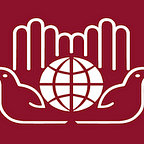IDHA Alumna Spotlight: ICRC Forensic Program Assistant, Rawan Chaaban
February 9, New York — Rawan Chaaban’s passion for humanitarian work hit close to home. Rawan was a second-year student at the American University of Beirut, Lebanon, when war broke out in 2006. The work she did to help displaced families in her community — including distributing food and other necessities, organizing fun activities for the children and contacting volunteer doctors on behalf of the displaced who were sick or pregnant — fueled her passion for community work, specifically with people affected by armed conflict. After she finished her undergraduate studies, Rawan pursued a Master’s degree in Public Health and joined the International Committee of the Red Cross (ICRC) Missing Field Officers’ team in Lebanon.
But Rawan’s educational pursuit did not stop there. As fulfilling as her work as a field officer was, Rawan said she wanted to develop “a strong holistic academic background in the field of humanitarian assistance and at the same time find a space where professionals from different disciplines and contexts can share their experiences and learn from each other.” Drawn to the IIHA’s International Diploma in Humanitarian Assistance (IDHA) because it provides a space for aid workers from around the world to learn together and from each other — she found what she was looking for.
Though Rawan was one of the youngest participants and one of the few without international experience, she formed last connections with her peers. “The passion for learning and serving people in better ways was common to all of us,” she said. “Everyone was eager to learn something new regardless of their age.”
The intensive one month program is intended to equip students with the skills to function efficiently and effectively under pressure. Under such conditions, many of Rawan’s favorite activities from the IDHA are responsible for some of the extensive skills she now possesses. Rawan can recall meeting with her group every night to prepare for weekly presentations. She said the tight deadlines taught her team to split up the work based on each member’s strengths. Debates were another popular part of the program. “They allowed us to tackle a complex problem from different perspectives and to think ahead of the potential counter-arguments,” she said.
Rawan has since risen to the Forensic Program Assistant position at the ICRC in Lebanon and is part of the Forensic Humanitarian Action of the ICRC, where she is working on two main projects. She oversees the collection and storage of buccal swabs to collaborate with the National Commission of Missing Persons and Forcibly Disappeared. She also works on expanding forensic capacities in the country, such as supporting the police DNA lab.
When asked what advice she would give her younger self, Rawan said that self-care is a critical part of the humanitarian sector. She described the work as, at times, “psychologically draining” and said it is essential to take care of yourself to ensure that you can care for others.
Rawan also said to remember the human connection when providing aid. “Do not assume that because you took some courses and had some training that you are the one who can independently decide what the people’s needs are,” she said. Listening, being culturally sensitive and engaging, and collaborating with those affected is crucial to understanding the problem and finding the best ways to solve it.
“Disasters and conflicts make people feel vulnerable and out of control,” she said. “Do not exacerbate this feeling by keeping them out of the decision-making process.”
And perhaps most importantly, Rawan emphasized the power of listening. As someone who works with families of missing persons, she said many people are just grateful to have someone willing to hear their stories, especially for relatives of those who have been missing for years. “Having someone listen to their stories after three decades means the world to them,” she said. “Never underestimate the impact of kind words and gestures.”
Written by Allison Lecce, IIHA Marketing and Communications Intern
About the IIHA
The Institute of International Humanitarian Affairs (IIHA) prepares current and future aid workers with the knowledge and skills needed to respond effectively in times of humanitarian crisis and disaster. Our courses are borne of an interdisciplinary curriculum that combines academic theory with the practical experience of seasoned humanitarian professionals. The IIHA also publishes on a wide range of humanitarian topics and regularly hosts a number of events in the New York area, including the annual Humanitarian Design for Humanity Summit.
For more information or media inquiries, please contact: Camille Giacovas, Communications & Research Officer, cgiacovas@fordham.edu
